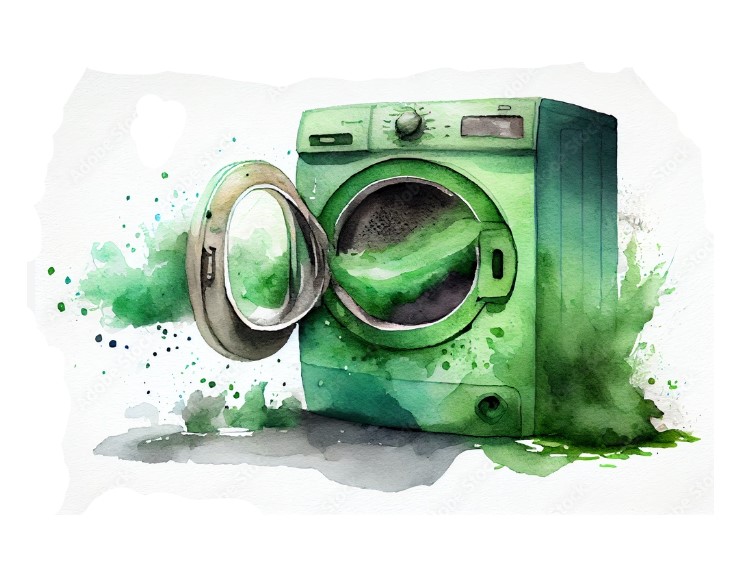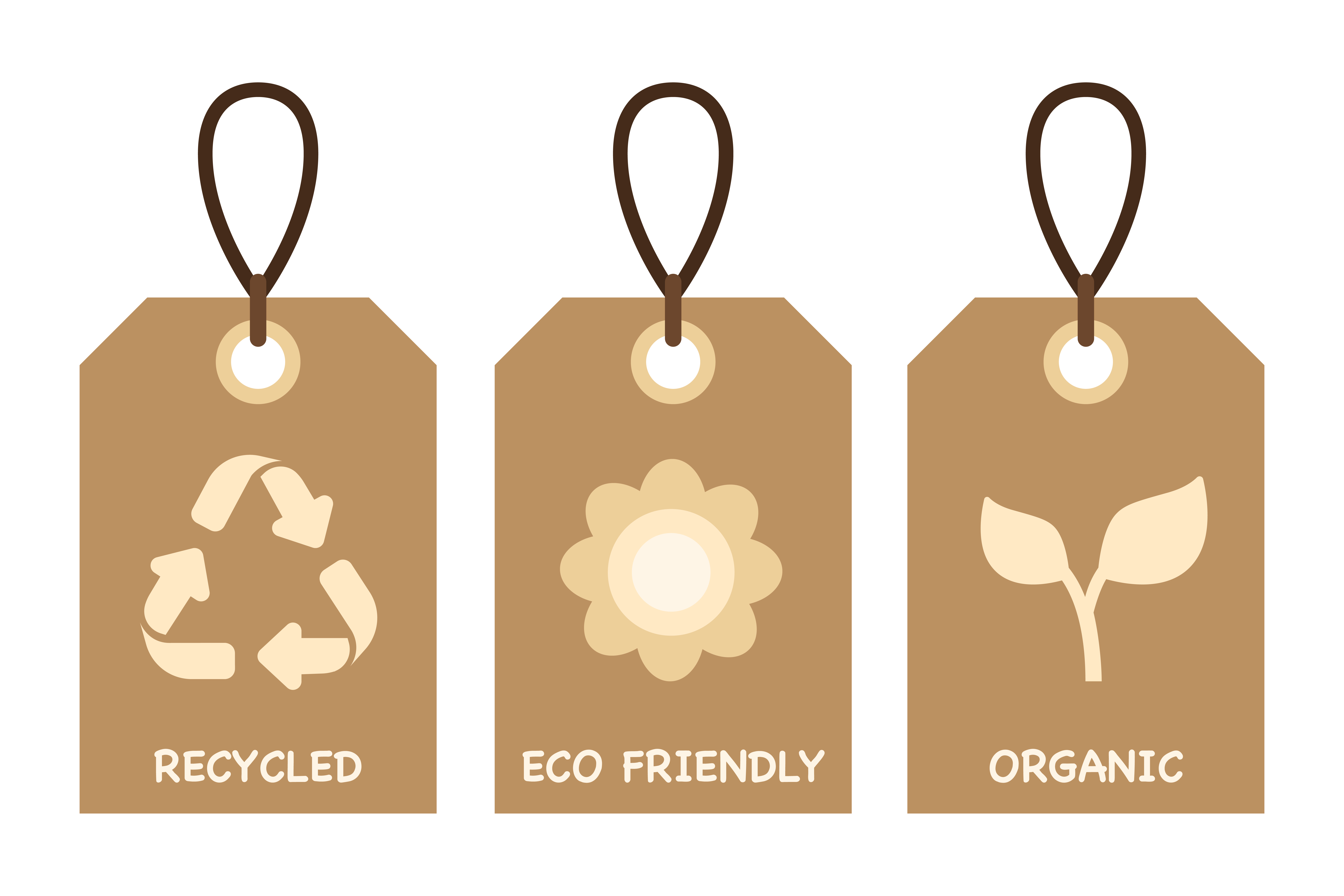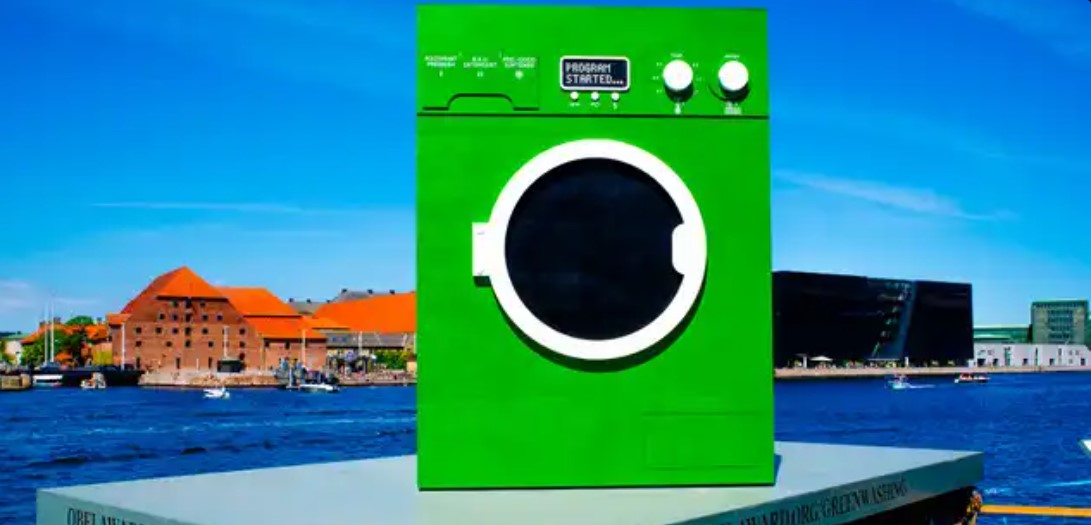By COSH! eco*
In an era of maturing environmental consciousness, consumers across Europe are increasingly seeking environmentally friendly and sustainable products and services. However, this surge in demand has given rise to lucrative greenwashing claims, where companies issue misleading statements, portraying themselves as environmentally responsible. As Europe strives to transition towards a greener future, it is crucial to expose and address the seven deadly sins of greenwashing. COSH! took a deep dive and examined the EU's legislative efforts and notable examples from its member states.
1. Vague Terminology
One common greenwashing tactic is using vague or ambiguous terms, such as “natural” or “eco-friendly.” European countries have recognised this issue and are taking action. For instance, the European Union (EU) introduced legislation establishing clear criteria for “green” products and services, including the EU Ecolabel and the European Green Claims draft Directive. Particularly the latter will profoundly affect the business and consumer landscape within the EU.
The Green Claims Directive is a directive proposed by the EU Commission on March 23, 2023, to combat so-called greenwashing. It is intended to give consumers the certainty that products and services advertised as environmentally friendly are backed up by scientific evidence. However, it will be some time before the proposed rules become binding on companies:
The necessary approvals by the EU Council and the EU Parliament are still pending. Member states then have 18 months to transpose the regulations into their national law. It will take a further six months before they actually come into force. Once the member states put this directive into law, all SMEs and MNEs will have to comply. Only companies with less than ten employees will be exempt. Despite these efforts, loopholes and inconsistent enforcement remain prevalent.
A European Commission and national authorities study found that 344 “seemingly dubious” sustainability claims were made online by companies, most of which were in the clothing and textiles, cosmetics and personal care, and household equipment sectors. According to the study, more than half of the environmental claims examined were vague or misleading, and as many as 40% were insubstantial. Other studies came to similar conclusions. This shows: Greenwashing is not limited to headline-grabbing individual cases but is a widespread problem.
2. Hidden Trade-Off
Greenwashing can occur when companies highlight a single environmentally friendly aspect of their product while conveniently neglecting other significant environmental impacts. European consumers are becoming more aware of this tactic, demanding greater transparency. European countries are responding with regulations promoting lifecycle assessments and comprehensive environmental data disclosure. The key is in nuance and a systems-thinking approach, offering a fully comprehensive view on what a sustainable product entails.
For example, many clothing brands do not disclose supply chains, which are often global, highlighting, for example, their use of organic cotton. What type of certification the cotton falls under and whether it is mixed with synthetic materials or where it was produced and ultimately shipped to, are essential sustainability aspects that also need to be transparently communicated. This exemplifies the importance of full lifecycle assessments and transparent reporting.
3. No Proof
Another grave offence in greenwashing is the lack of credible evidence to substantiate environmental claims. Europe addresses this issue through legislation such as the Green Claims draft that mandates substantiation and third-party verification of environmental claims.
“Terms such as ecological, organic, and environmentally friendly were used frequently and without substantiation.”
Netherlands Authority for Consumers and Markets (ACM)
4. Irrelevance
Greenwashing culprits often make claims that are technically accurate but irrelevant to the overall environmental impact of the product or service. Europe focuses on raising awareness and promoting accurate labelling to prevent misleading claims. This can be particularly observed in the use of fossil fuel-based textiles that dominate the global fashion economy to date. Downcycling plastic bottles into clothing eliminates all environmental benefits and, in fact, reduces the lifecycle of plastic bottles unless they have been retrieved from the ocean or other biospheres. This demonstrates the necessity of considering the broader environmental implications.
5. The Lesser of Two Evils
Some companies attempt to portray their products as environmentally friendly compared to an even more detrimental alternative. European countries are working to establish comprehensive standards that evaluate products based on their true environmental impact rather than relative comparisons. The rise in popularity of electric vehicles, which companies such as Tesla have greatly benefited from, exemplifies the distorted view of transportation and infrastructure. Rather than investing in public transportation and bike-friendly cities and centres, Germany is still desperately holding on to a car-dominated infrastructure, focussing on carbon neutrality through technology while failing to include the immense hunger for raw materials that this transition to battery-powered transportation entails.

6. Greenwashing by Unsubstantiated Affiliation
Some companies attempt to associate themselves with credible sustainability initiatives or use eco-friendly symbols and labels that may mislead consumers. COSH! has observed this with GOTS Oeko-Tex, which certain companies have published on their websites, yet they do not divulge details of their certification or, at times, are not even listed under the GOTS database. Such deceptive practices can exploit consumer trust and make it difficult for consumers to differentiate between legitimate and misleading environmental claims. Addressing these inconsistencies requires a radical increase in collaboration and coordination among EU member states. Strengthening enforcement capacities, harmonising standards and penalties, and investing in resources for accurate product assessments are vital steps towards effectively combating greenwashing in Europe. Additionally, enhancing consumer awareness and education about greenwashing practices can empower individuals to make informed choices and hold companies accountable for their environmental claims.
7. Fibbing
Like issuing vague information, fibbing in greenwashing refers to making false or misleading statements about a product’s environmental impact or sustainability practices. It involves dishonesty or exaggeration to deceive consumers or create a false perception of being environmentally friendly. For example, fast fashion companies such as H&M, Zara or Mango continue to release several collections labelled as sustainable, giving them names such as “committed” or “clothes made from carbon emissions”. By failing to address the crisis of overconsumption and textile waste, the term sustainability becomes nothing more than a hollow shell.
--
The Barriers Preventing Collective Implementation and Enforcement

Lack of Harmonisation
While the EU has introduced guidelines for green claims, there is still a lack of collaborative organisation among member states to interpret and enforce these guidelines. This can lead to varying standards and criteria for assessing environmental claims, increasing the layers of complexity and confusion for businesses operating in multiple EU countries and for consumers. To counter this, the EU Commission proposed a corporate sustainability due diligence Directive on 23 February 2022. The aim is to provide a harmonised legal framework within the EU, creating legal certainty and levelling the playing field.
This directive aims to foster sustainable and responsible corporate behaviour and to anchor human rights and environmental considerations in companies’ operations and corporate governance. The new rules aim to ensure that businesses address the adverse impacts of their actions and their value chains inside and outside Europe. It applies to large EU limited liability companies, third-country companies active in the EU with a significant turnover and SMEs. Companies that do not comply with the directive may be fined at least 5% of their net worldwide turnover and banned from public procurement by EU member states.
Additionally, the European Commission revised and adopted a new Commission Notice on the interpretation and application of the Unfair Commercial Practices Directive (‘the UCPD Guidance’). This revision includes aspects such as influencer marketing, consumer reviews and endorsements, and environmental claims and planned obsolescence, to name a few. This text, in line with the Green Deal and the Action Plan on the Circular Economy, will aim to protect consumers by giving them the means to be better informed about these commercial practices when advertising, buying or using products. For example, due to the pollution caused by textile products throughout their entire life cycle, the textile sector must adhere to the newly established regulations on climate-related claims. The Commission has emphasised that product assertions such as “climate neutral,” “carbon neutral,” or “100% CO2 offset” are deceptive for consumers and must be subject to the same rules.
“These legislative and regulatory changes towards more control and coercion can only encourage fashion brands to put in place effective means to measure and reduce their impact as part of their CSR approach,”
Glynnis Makoundou, Lawyer in Fashion Law
Limited Enforcement Resources
The enforcement of greenwashing regulations often falls under the responsibility of national authorities within each EU member state. However, these authorities may face resource constraints, including limited or underqualifief staffing and budgetary allocations, which can hinder effective monitoring and enforcement of greenwashing practices. For example, following the adoption of the 2020 Circular Economy Action Plan, the European Commission’s (EC) Green Public Procurement (GPP) criteria are voluntary for several product groups. This procurement process is “a process whereby public authorities seek to procure goods, services and works with a reduced environmental impact throughout their life cycle when compared to goods, services and works with the same primary function that would otherwise be procured.” – European Commission, Green Business
Inconsistent Penalties
Penalties for greenwashing offences can vary across European countries, leading to lax consequences for companies found guilty of providing misleading environmental claims in certain member states. Due to the EU’s varied legal systems, legislative updates and resource gaps, some countries may impose significant fines and sanctions, while others may have less stringent penalties. This lack of uniformity can result in failure to send a strong message to potential greenwashing offenders and result in reduced investments in stricter member states.
"Greenwashing... above all harms the companies that are seriously committed to environmental protection and invest accordingly for this purpose. In other words, greenwashing harms environmental protection in both cases, whether discovered or concealed. It also distorts competition: customers opt for supposedly more environmentally friendly products and thus unintentionally harm those competitor manufacturers who do not operate on the market with misleading or insubstantial advertising."
Barbara Scheben, Partner, Head of Forensic, and Head of Data Protection at KPMG.
The Complexity of Product Assessment
Determining a product’s or service’s environmental impact requires comprehensive assessments that consider the entire lifecycle, from raw material extraction to production, use, and disposal. Conducting these assessments accurately and consistently can be challenging and resource-intensive for both businesses and regulatory authorities, potentially leaving room for inaccuracies or oversights. Aside from the HIGG Index, GOTS, the Forest Stewardship Council (FSC), and the EU Ecolabel, the sustainability certificates are as diverse as they vary in criteria they do or do not adhere to. In Europe, the EU Ecolabel is the only pan-European Type I ecolabel. It is recognised throughout Europe, thus supporting the Single Market for green products. It is an ISO 14024 Type 1 ecolabel, which means it is reliable, multi-criteria and third-party verified. Criteria are set with a lifecycle approach through an open, transparent, multi-stakeholder process.
“In order to provide consumers with reliable information about the actual environmental benefits of a product or service, (the Green Claims) draft Directive aims to limit the proliferation of eco-labels and similar labels. There are currently more than 200 of these - with very large differences in requirements and controls, which can lead to confusion and mistrust. In the future, such labels are to be developed primarily at the EU level.”
Barbara Scheben, Partner, Head of Forensic, and Head of Data Protection at KPMG
Ecolabeling schemes must be transparent, free of charge and accessible. Once the Green Claims Directive goes into effect (earliest in 2025), there will be a prohibition on creating new publicly owned schemes and a validation procedure for private operators.
Additional Regulations
Apart from all EU member states enforcing and applying regulations and directives set by the European Commission, such as the Unfair Commercial Practices Directive (UCPD), the Consumer Rights Directive (CRD), and, eventually, the Green Claims Directive, individual member states such as the Netherlands, Germany or Belgium have further, country-specific legislation in place to combat greenwashing.
The Netherlands
Dutch Civil Code (Burgerlijk Wetboek): This code includes provisions against misleading advertising and unfair trade practices, which can be applied to combat greenwashing. The new Dutch Sustainability Claims Code (Code voor Duurzaamheidsreclame, CDR) took effect on 1st February 2023, replacing the Environmental Advertising Code (Milieu Reclame Code, MRC). It is a part of the Dutch Advertising Code (Nederlandse Reclame Code, NRC), widely recognised as a self-regulatory framework in the Netherlands. These regulations are built upon the Dutch Unfair Commercial Practices Act, the national implementation of the EU Unfair Commercial Practices Directive (2005/29/EC), and the EU Audiovisual Media Services Directive (2010/13/EU).
On June 26th, Dutch influencer Sara Dubbeldam sued Primark NL over greenwashing via the Advertising Code Committee (RCC). The Advertising Code Committee is a Dutch organisation that assesses advertisements for their fairness and reliability. If the RCC concludes that Primark’s claims are misleading to the consumers, Primark may no longer advertise this way. Should the company not comply, the RCC may ask the regulator Authority Consumer and Market (ACM) to act, possibly using a fine.
Responsible Business Conduct (RBC) agreements: The Dutch government has established responsible business conduct (RBC) agreements with various sectors and civil society organisations. These agreements outline the collaborative efforts between companies, civil society organisations, and the government to prevent abuses related to human rights, labour rights, and the environment. The following agreements specify the guidelines for companies to engage with civil society organisations and the government to ensure responsible business practices. These include, but are not limited to, the Dutch Agreement on Sustainable Garments and Textiles and the Agreement to Promote Sustainable Forestry.
Germany
Act Against Unfair Competition (Gesetz gegen den unlauteren Wettbewerb): This law prohibits unfair competition practices, including false or misleading environmental claims. It also prohibits using warranty marks or quality seals without appropriate authorisation. German Federal Environmental Agency (Umweltbundesamt): The agency provides guidelines and information to businesses and consumers on environmental claims, promoting transparency and accuracy.
Germany’s Federal Minister for Consumer Protection, Steffi Lemke, is also pushing for an AI label that would apply to all goods and services produced with AI.
Belgium
Belgian Code of Economic Law (Code de droit économique/Wetboek van Economisch Recht): The general legal framework regarding misleading commercial practices can be found in Book VI of the Belgian Code of Economic Law, which transposes the European Unfair Commercial Practices Directive N° 2005/29 into Belgian law. This code includes provisions against false advertising and unfair trade practices, which can be applied to combat greenwashing. Furthermore, the Belgian Federal Public Service for Economy (Service Public Fédéral Economie) is an organisation that monitors and enforces consumer protection laws, including regulations related to misleading environmental claims.
--
At a Crossroads

Greenwashing Significantly Threatens Europe’s Sustainability Goals and Consumer Trust
KPMG’s Barbara Scheben states, “The issue has several dimensions: In the starting point, of course, it is a deception of the consumer, who often consciously decides in favour of a certain, possibly also higher-priced product precisely because of the supposed sustainability. This deception can then have two consequences: If it goes unnoticed, the major environmental problems remain, while consumers soothe their consciences by buying supposedly environmentally friendly products. If, on the other hand, greenwashing becomes public, general confidence in the sustainability of products, services and, not least, eco-labels declines. And this can successively reduce the demand for environmentally friendly products.” While European countries have taken notable steps to combat greenwashing through legislation, challenges remain in ensuring consistent enforcement and closing regulatory loopholes. Consumers must remain vigilant, demanding transparency, independent verification, and credible certifications to combat the deadly sins of greenwashing and foster a truly sustainable future in Europe.
--
*Written by Sophia, Journalist and Senior Copywriter German & English for COSH! - The original article can be found here
Images credits: Adobe Stock, Freepik.com











